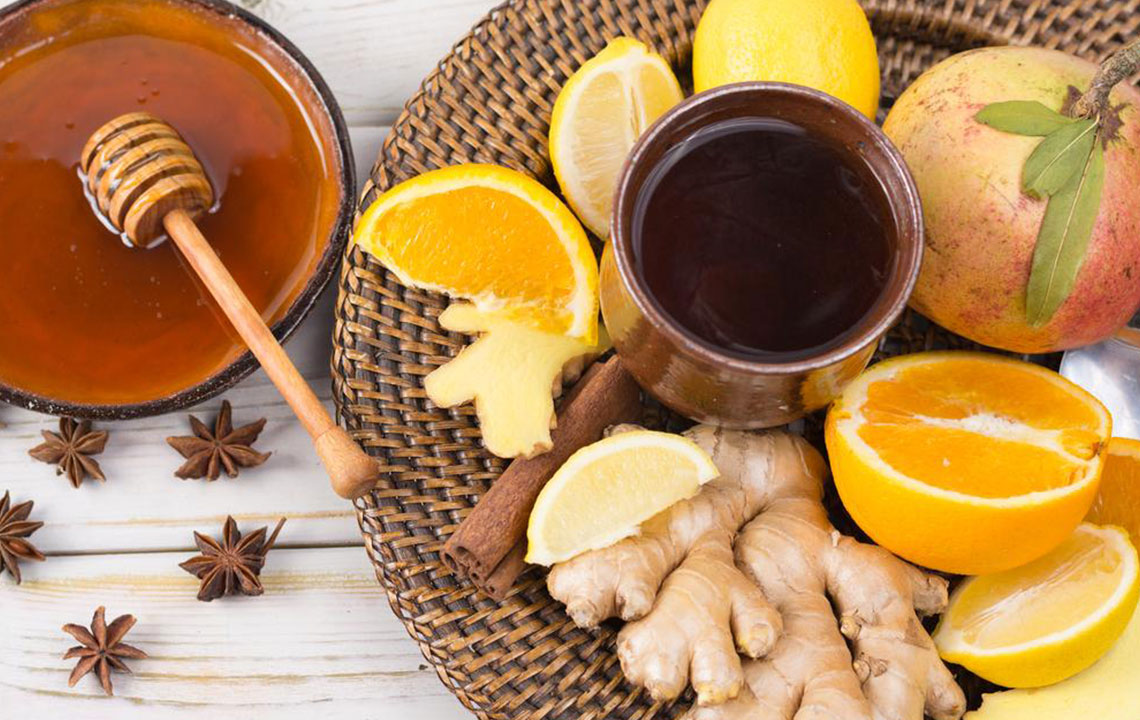Comprehensive Home Remedies for Rapid Relief from Stomach Discomfort
Discover effective natural home remedies to quickly alleviate stomach discomfort, including dietary tips, herbal teas, and lifestyle changes. Learn how ingredients like ginger, apple cider vinegar, and yogurt can promote digestive health and prevent future issues. This comprehensive guide emphasizes natural solutions for immediate relief and long-term gut wellness, suitable for mild to moderate stomach pains. When symptoms persist, professional medical consultation is recommended for accurate diagnosis and treatment. Implement these simple, accessible remedies to enjoy comfort and better digestion every day.

Stomach discomfort is a common issue experienced by many individuals, characterized by a range of sensations from dull aches to sharp pains that occur in the region between the chest and pelvic area. These symptoms can result from various causes including indigestion, bloating, gas, constipation, or menstrual-related issues. Fortunately, there are numerous natural and effective home remedies that can help alleviate this discomfort swiftly, allowing you to regain comfort and normalcy without the immediate need for medication. This article explores detailed, scientifically supported methods for soothing stomach pain using widely accessible ingredients and techniques.
Understanding the root causes of stomach discomfort is essential for effective treatment. Often, indigestion, dietary habits, stress, or gastrointestinal conditions contribute to these symptoms. Addressing them with natural remedies not only provides quick relief but can also promote overall digestive health, preventing future episodes. Below, we delve into over ten proven methods to help you manage stomach aches naturally and efficiently.
1. Drinking Warm Water to Stimulate Digestion
Starting with a simple yet effective remedy, drinking warm water can significantly enhance blood flow in the abdominal area. This promotes better digestion, relaxes muscles in the gastrointestinal tract, and alleviates pain caused by indigestion or spasms. Warm water acts as a gentle stimulant for digestive enzymes, facilitating smoother breakdown of food. To maximize benefits, sip warm water slowly on an empty stomach or during meals when discomfort strikes.
2. Incorporating Oatmeal for Fiber-Rich Relief
Oatmeal is a powerhouse of dietary fiber, offering both soluble and insoluble fibers that help regulate bowel movements and prevent constipation—a common contributor to stomach pain. Consuming a warm bowl of oatmeal can soothe inflamed digestive tissues, stabilize blood sugar levels, and reduce the likelihood of cramping. It’s also gentle on the stomach, making it suitable even for sensitive individuals.
3. Eating Apples to Ease Digestive Processes
Apples are rich in dietary fiber, particularly pectin, which aids in softening stool and promoting healthy digestion. They can help ease bloating and discomfort related to slow transit of food through the gut. Eating fresh apples or incorporating apple-based remedies into your diet can be a natural way to soothe stomach issues and improve gut health over time.
4. Using Ginger’s Anti-inflammatory Properties
Ginger has long been revered for its potent anti-inflammatory and digestive benefits. It helps reduce gas, nausea, and motion sickness, making it an excellent natural remedy for various gastrointestinal disturbances. A simple way to harness ginger’s properties is to brew fresh ginger tea or include small amounts of grated ginger in meals. Its active compounds stimulate digestive secretions and help relax intestinal muscles, easing cramps and pain.
5. Consuming Chamomile Tea for Cramps and Indigestion
Chamomile tea is a calming herbal infusion that offers antimicrobial and anti-inflammatory benefits. It effectively reduces indigestion, stomach cramps, and menstrual discomfort by soothing inflamed tissues and relaxing intestinal muscles. Drinking a cup of warm chamomile tea at the onset of discomfort can provide rapid relief and promote relaxation for the digestive system.
6. Peppermint and Spearmint to Relax Digestive Muscles
Mint varieties like peppermint and spearmint contain menthol, which relaxes the muscles of the gastrointestinal tract. This relaxation can prevent cramps, reduce gas, and support smoother passage of food and waste. Peppermint oil capsules or fresh peppermint leaves steeped in hot water are popular options for gentle, effective stomach relief.
7. Fennel Seeds to Reduce Bloating and Gas
Fennel seeds are a traditional remedy known for stimulating digestive enzymes, reducing inflammation, and alleviating excess gas. Chewing fennel seeds after meals or preparing fennel tea can help relax the gastrointestinal muscles, decrease bloating, and relieve discomfort caused by indigestion or gas buildup.
8. Apple Cider Vinegar for Digestive Enhancement
Apple cider vinegar is a versatile ingredient that can improve overall digestion and reduce symptoms like bloating and indigestion. Diluting a tablespoon of raw, unfiltered apple cider vinegar in a glass of water and drinking it before meals may help increase stomach acid production, supporting better breakdown of food and reducing irritable bowel symptoms.
9. Lemon’s Role in Boosting Hydrochloric Acid and Detoxification
Lemon juice enhances the production of hydrochloric acid in the stomach, which is vital for proper digestion and toxin elimination. Squeezing fresh lemon into warm water and drinking it regularly can aid in breaking down food more efficiently, reducing bloating, and promoting a healthy gut environment.
10. Yogurt for Gut Health and Bloating Reduction
Yogurt containing live beneficial bacteria (probiotics) supports a healthy gut microbiome. Regular consumption of probiotic-rich yogurt can decrease bloating, promote regular bowel movements, and reduce gastrointestinal infections. It’s a delicious and natural way to reinforce digestive health and prevent future discomfort.
When to Seek Medical Attention
While these home remedies can be highly effective for minor and occasional stomach discomfort, persistent or severe pain warrants professional medical evaluation. If pain lasts more than a few days, is accompanied by fever, vomiting, blood in stool or vomit, or sudden weight loss, consult a healthcare provider immediately to rule out underlying serious conditions such as infections, inflammatory bowel disease, or gastrointestinal obstructions. Proper diagnosis and treatment are crucial for persistent issues or worsening symptoms.
In conclusion, managing stomach discomfort naturally involves a combination of dietary adjustments, herbal remedies, and lifestyle changes. Incorporating these practical solutions into your daily routine can greatly reduce the frequency and severity of stomach aches, promoting overall digestive health and well-being. Always listen to your body, and seek professional help when needed to ensure optimal health and comfort.





